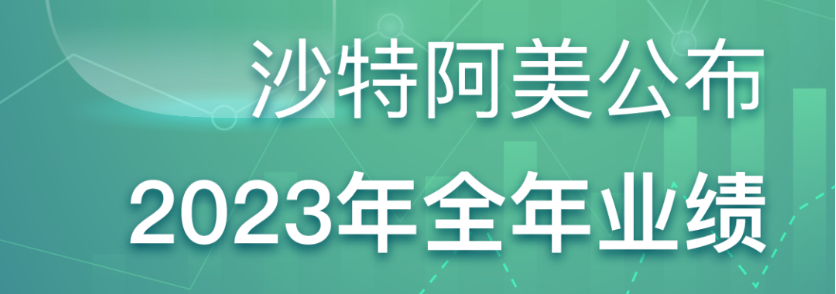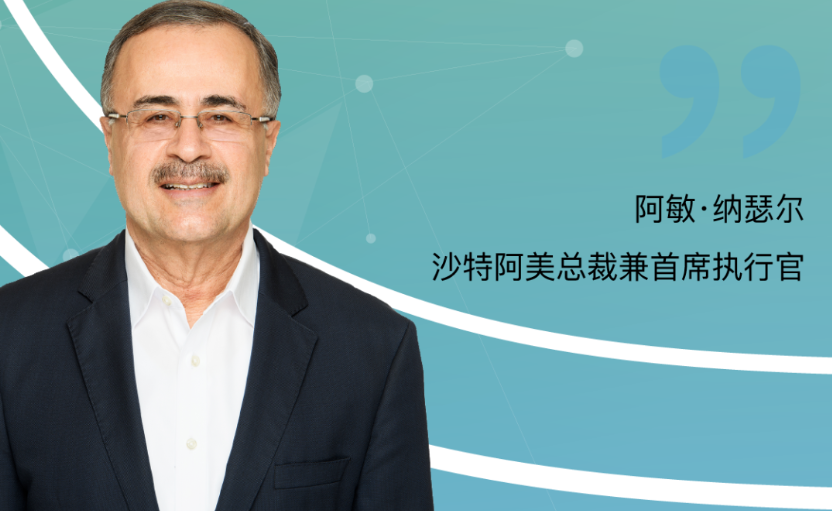- Net income achieved the second highest in history, and total dividends increased by 30% year-on-year
- Net income of $121.3 billion, the second highest in history ($161.1 billion in 2022)
- Total dividends in 2023 will be $97.8 billion, up 30% from 2022
- The Board of Directors declared a base dividend of $20.3 billion for the fourth quarter of 2023, up 4% year-over-year, payable in the first quarter of 2024; Benefit-linked dividend was US$10.8 billion, up 9%; Two dividends of US$9.9 billion were paid in the second half of 2023
- The full-year 2024 benefit-linked dividend is expected to be $43.1 billion, with $10.8 billion to be paid in the first quarter after board approval based on previously announced criteria
- Cash flow from operating activities of $143.4 billion (2022: $186.2 billion)
- Free cash flow* of $101.2 billion (2022: $148.5 billion)
- Gearing ratio*: -6.3% at the end of 2023 (-7.9% at the end of 2022)
- Capital investment increased by $49.7 billion, including organic capital expenditures of $42.2 billion (2022: $38.8 billion, of which organic capital expenditures were $37.6 billion)
- Net income for the fourth quarter of 2023 was in line with analysts’ expectations, despite a non-cash charge of approximately $1.5 billion
- By 2030, natural gas production will increase to more than 60% from a 2021 baseline
- First international investment in LNG business, enabling strategic portfolio expansion and value creation
- The presence in Saudi Arabia and major markets around the world continues to expand, and the downstream business continues to expand in scale and achieve value growth
- Two solar co-development projects received shareholder approvals with a total estimated power generation capacity of 2.66 million kilowatts, underscoring the company’s focus on renewable energy
On March 10, Saudi Aramco (Aramco) announced its full-year 2023 financial results, with net income of $121.3 billion, the second-highest on record.

These achievements are based on operational flexibility, reliability and low-cost production, while also reflecting the company’s continued commitment to creating value for shareholders.

Amin Nasser, President and CEO of Saudi Aramco, said: “In 2023, the company’s net revenue reached $121.3 billion, the second highest in its history. In the face of the economic downturn, the company was resilient and responsive, maintaining healthy cash flow and high levels of profitability. In addition, we have delivered strong returns to our shareholders, with a 30% year-over-year increase in total dividends in 2023. ”
“The company seeks to create and capture more value in its business operations, and the capex growth is in line with the guiding targets. We firmly believe that in the coming decades, oil and gas will become an important part of the global energy mix, along with new energy solutions. “
“The company’s maximum sustainable capacity will remain at 12 million b/d in line with recent government directives, which gives us greater flexibility and a great opportunity for us to focus on natural gas growth and grow our petrochemical business. At the same time, we continue to make progress on strategic crude oil production increases, which will help improve our reliability, operational agility and ability to navigate the market.
“At the same time, the company made its first international investment in the LNG business, achieved international retail growth, secured major overseas refining and chemical projects, and made significant progress in its new energy portfolio. These achievements demonstrate our ability to capitalize on new market opportunities and continue to advance our strategic objectives. “
Financial Performance
Aramco achieved net income of $121.3 billion, the second highest on record, at $161.1 billion in 2022. The year-on-year decline in net income was due to lower crude oil prices and volumes, lower refining and chemical product margins, partially offset by lower production royalties and lower income and taxes for the year.
Free cash flow* was $101.2 billion, compared to $148.5 billion in 2022. Aramco’s balance sheet remains strong, with a gearing ratio* of -6.3% at the end of 2023 compared to -7.9% at the end of 2022.
Aramco paid a total of $97.8 billion in dividends, a 30% increase from 2022. The fourth-quarter underlying dividend was $20.3 billion, which will be paid in the first quarter of 2024. In addition, the Board approved a third benefit-linked dividend distribution totalling $10.8 billion.
Last August, Aramco announced that it would combine its 2022 and 2023 results, on the basis of which the first benefit-linked dividend will be calculated and paid in six quarters starting in the third quarter of 2023. According to the previously announced mechanism and the results of the board of directors’ approval, the full-year benefit-linked dividend to be paid in 2024 will be approximately US$43.1 billion, including a first-quarter dividend of US$10.8 billion.
Capital investments were $49.7 billion (including organic capital expenditures of $42.2 billion), compared to $38.8 billion in 2022 (organic capital expenditures of $37.6 billion), up 28% year-over-year. Aramco expects capital investment of approximately $48 billion to $58 billion in 2024, with a government directive to maintain maximum sustainable capacity at 12 million b/d due to delayed project start-up and reduced infill drilling, which is expected to reduce capital investment by about $40 billion between 2024 and 2028.
Operational Highlights
In 2023, Saudi Aramco produced an average of 12.8 million barrels of oil equivalent per day, including 10.7 million barrels per day of oil production.
Aramco continues its strong performance in supply reliability, delivering crude oil and other products with 99.8% reliability in 2023.
Aramco’s Marjan, Berri, Dammam and Zuluf crude oil stimulation projects are progressing to improve Aramco’s reliability, operational flexibility and ability to derive value from increased global crude demand, while helping to maintain maximum sustainable production capacity of 12 million b/d.
Saudi Aramco’s natural gas projects are also underway, with the goal of increasing gas production by more than 60% by 2030 compared to 2021. These projects include the Hawiyah Unayzah gas storage, which has begun gas injection with the goal of providing up to 2 billion standard cubic feet per day of natural gas, which is then fed into the dry gas system. Upon completion of the gas plant expansion, the Hawiyah plant will add 800 million standard cubic feet per day of raw gas processing capacity, including approximately 750 million standard cubic feet of sales gas capacity and the first unconventional tight gas production at the South Garwar operation.
Following the signing of a definitive agreement to acquire a strategic minority stake in MidOcean Energy, Saudi Aramco announced its first international investment in the LNG business. Closing conditions are subject to closing conditions, including regulatory approvals.
In line with Aramco’s strategic objective of advancing its petrochemical business, Aramco acquired a 10% stake in Rongsheng Petrochemical Co., Ltd. (“Rongsheng Petrochemical”).
Under a long-term sales agreement with Rongsheng Petrochemical, Saudi Aramco has the right to supply 480,000 b/d of crude oil to Zhejiang Petrochemical Co., Ltd. (“Zhejiang Petrochemical”), a subsidiary of Rongsheng Petrochemical, which operates a leading refining and chemical complex in China.
To compensate for the lack of high-quality lubricant products, Saudi Aramco completed the acquisition of Valvoline’s global products business. The acquisition is expected to optimize Aramco’s global base oil production capacity and expand its R&D activities and partnerships with OEMs.
Saudi Aramco and TotalEnergies awarded an engineering, procurement, and construction contract for the $11 billion Amiral joint plant. The expansion, a future world-class petrochemical complex, is located at the SATORP refinery in Jubail, Saudi Arabia. The complex will have one of the largest mixed-feed steam crackers in the region, with the capacity to produce 1.65 million tonnes of ethylene and other industrial gases per year. The project, based on SATORP, will advance Aramco’s petrochemical strategy and is expected to be commercially operational in 2027.
To support the expansion of its global retail business, Saudi Aramco has completed the acquisition of a 100% stake in Chilean retailer Esmax Distribución SpA (“Esmax”) from the Southern Cross Group. Esmax is one of Chile’s leading retailers of diversified downstream fuels and lubricants. It is also Aramco’s first downstream retail investment in South America. Saudi Aramco also signed a definitive agreement to acquire a 40% stake in Pakistan Gas & Oil Limited, a diversified downstream fuel, lubricant and convenience store operator in Pakistan; The transaction is subject to customary closing conditions, including regulatory approvals.
To promote the development of renewable energy and achieve the goal of harnessing the Kingdom’s solar resources, Aramco has signed a shareholder agreement with the Saudi Public Investment Fund and the Saudi International Power and Water Company to develop the Al Shuaibah 1 and Al Shuaibah 2 photovoltaic solar projects in the Kingdom of Saudi Arabia. The project is expected to have a total installed capacity of 2.66 GW and commence commercial operations in 2025.
As part of Aramco’s corporate development activities, and to strengthen its supply chain ecosystem, Aramco has also signed shareholder agreements with Baoshan Iron and Steel Company Limited (“Baosteel”) and the Saudi Public Investment Fund to build a world-class heavy plate plant in the Kingdom of Saudi Arabia; and entered into a shareholder agreement with DHL for a new procurement and logistics hub.
Recognized for its pioneering deployment of cutting-edge technologies to deliver a range of operational, commercial and environmental benefits, the Yanbu refinery became the fourth plant to join the World Economic Forum’s Global Lighthouse Network. This reflects Aramco’s continued focus on the development and deployment of state-of-the-art Fourth Industrial Revolution technologies to improve operational capabilities.
Source: Saudi Aramco





